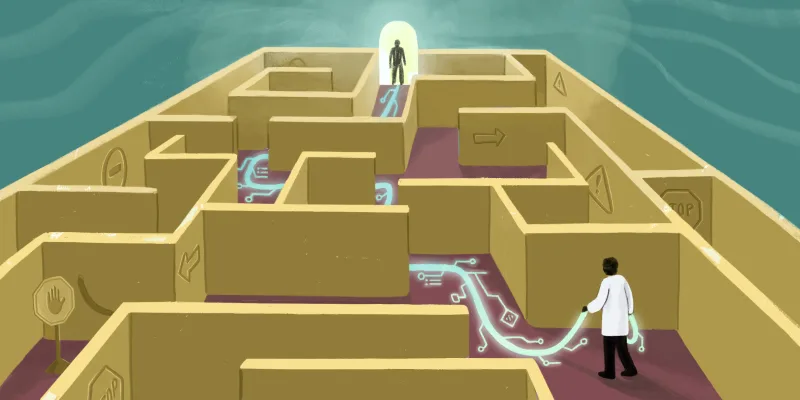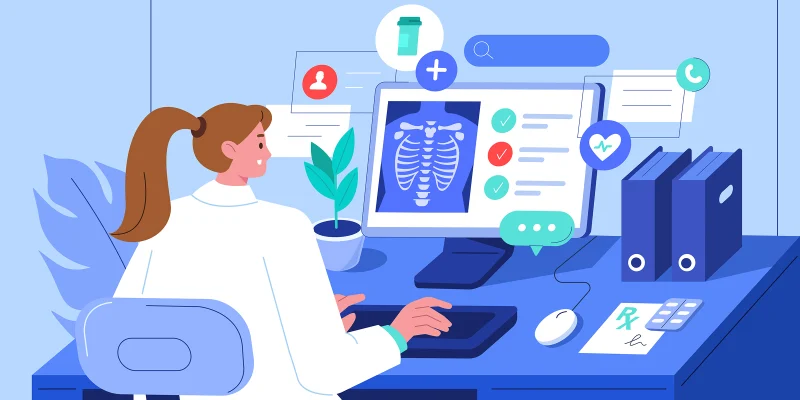Many years ago, I discovered that I was having mental health challenges. My career was not making sense to me; I could not finish anything I had started, and despite having the best life situation I had ever had, I was unhappy. Before seeking mental health services, I spoke to a leader who made it clear that if I went ahead with it, I would have to be evaluated by the state board of medicine to see if I was fit to continue practicing. I was compared to physicians with substance use challenges and told I would have to prove I could still do my job. I thanked that person and told them I would never seek help because of that conversation. I was fortunate because I eventually did seek help — eight years later — but for others, a conversation like the one above forever impedes their ability to get the help they need.
This experience led me to explore what physicians can do to get their mental health back on track. One simple approach is psychotherapy.
Among physicians, there is a reluctance to seek out psychotherapy. Stigma and fear of negative professional consequences are two oft-stated reasons. However, our mental health needs to be a priority. Further, we physicians are not averse to learning, and psychotherapy can be an essential learning tool for us. (That said, I recognize that psychotherapy alone may not be the solution for everyone and that medications have an important role in mental health care.)
For those who have forgotten, the NIH has published the following definition of psychotherapy: “Psychotherapy (sometimes called talk therapy) refers to various treatments that help a person identify and change troubling emotions, thoughts, and behaviors. Most psychotherapy takes place when a licensed mental health professional and a patient meet one-on-one or with other patients in a group setting.”
Physicians can learn many things from psychotherapy. These include:
Vulnerability: We are taught and have internalized that vulnerabilities are weaknesses. We learned that vulnerability can erode patient trust. Therapy can help us develop a healthy professional identity, including embracing vulnerabilities. Vulnerabilities help build empathy, which is a necessary skill in treating patients. Understanding our vulnerabilities and expressing them is a strength.
Boundaries: We can now access the medical record from our watches and be notified of patient issues at any time. We are conditioned to respond to patient needs as they arise and spend more time working than ever. Therapy teaches us how boundaries improve patient care. Setting boundaries for checking email, accessing the patient portal, and completing visit notes can limit intrusion into personal life. It can address the 24/7 nature of digital medicine.
Trauma: Extreme circumstances before, during, and after the COVID-19 pandemic have left us experiencing trauma without the time or ability to process it. Therapy helps us process the moral injury and ensuing trauma from working in large health systems and being forced to act against our values. Psychotherapy allows for the necessary “slowing down” to recognize the real challenges.
Physician exceptionality: Some of us worked for months without days off in residency. Others may have been on call every other day for years, working day and night in the same 24-hour period. We understand that there are biological limits to what we can do, but we set those limits outside of what is healthy to do. I call it the “superhuman complex” or “toxic masculinity of medicine,” which refers to the cultural unacceptablility of having the same challenges as non-physicians. Therapy helps physicians understand personal and professional limits.
There has been some positive movement in the U.S. to address the fear that seeking mental health help will impact a physician’s ability to be licensed. In 2018, the FSMB published recommendations that included eliminating stigmatizing questions about mental health diagnosis and treatment from licensure applications. The FSMB recommended that if applications include questions about conditions, there should be no differentiation between physical and mental health conditions and that the focus should be on current impairment. The Joint Commission and the American Medical Association have reinforced these recommendations. According to Dr. Lorna Breen Heroes Foundation, as of October 2023, 26 states have revised their licensure applications for physicians to align with the recommendations of the FSMB. This is one step toward institutional changes that will benefit physicians.
These additional changes can help physicians obtain health and knowledge through psychotherapy. There are numerous free mental health resources for health care professionals that I have found helpful, from the Physician Support Line to the Emotional PPE Project to PeerRxMed.
These tools are stepping stones to help us find a solution, but health system leaders must stop the harm. Providing individual solutions to a systemic problem only offers a “lifeline.” The combination of institutional change and individual strategies can make a difference. By embracing psychotherapy and other mental health resources, we can improve our mental health, professional performance, and the care we provide to our patients.
What do you do to keep your mental health on track? Share in the comments.
Dr. José E. Rodríguez, MD, is a tenured professor of family and preventive medicine at the University of Utah, where he also serves as the associate vice president for Health Sciences Workforce Excellence. With extensive experience in health equity, diversity, and inclusion, Dr. Rodríguez has been recognized as one of the 63 Hispanic and Latino Leaders to Know by Becker's Hospital Review. He holds multiple certifications and has contributed significantly to academic medicine through his numerous publications and editorial roles. Dr. Rodríguez would like to acknowledge Dr. Hernan Barenboim and Dr. Linda Myerholtz, experts in psychology, who wrote the initial drafts with him of the manuscript that became this essay.
Image by GoodStudio / Shutterstock







